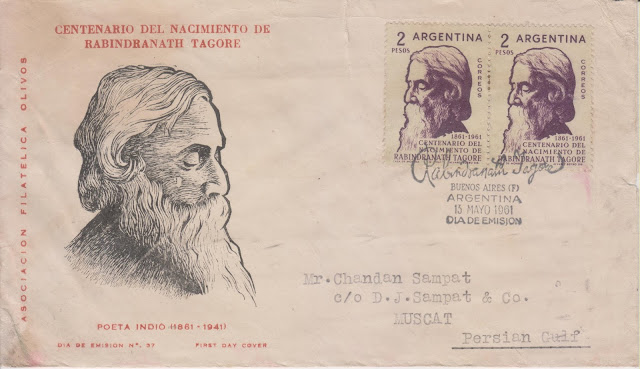Poems, then and now
Poetry
Poems then
Some of the initial
memories of poems are from my days in school. Few of those poems have since stayed
with me, be it the Gujarati poem by Narsinh Mehta I was taught in 3rd standard or
the efforts our teacher took to discuss To The Skylark. The later during 9th standard.
Schools also made me
hate poems. Especially when we had to mug them up for oral examinations. I
recall beginning to dislike Rabindranath Tagore. All this despite loving
English. Years late when I read more about Tagore I realized how silly a folly
it was. And that not many schools, even today, can boast of the spirit to
discuss Where the Mind is Without Fear!
I too during days of
rising to and falling off love wrote what I then thought was poetry. The other
day I came across one and cringed!
Poems today
At home
During recent times
poetry is back in life and how. Raghuvir Sahay aptly puts in in Aaj phir shuru hua
". . आज फिर शुरू
हुआ जीवन
आज मैंने
एक छोटी-सी सरल-सी कविता पढ़ी. .”
Being a part of group
where people share poems has led to a different set of conversations with
friends, allowed me to know more about them, enabled me to make new friends and
of course brought new poems and poets to my life.
Over the past months I
have tried to read more – many more - poems than before. The experience has
been nothing less than mind-boggling. The learning slow and eye-opening. I
realized, for example, that Hindi poems can be simple and stark. They impact in
a manner that little else can. There are poets I would do good to know more of.
Naresh Saxena for example; his Tum wohi man ho ki koi
doosre ho connects vividly -
“. . कल तुम्हें सुनसान अच्छा लग रहा था
आज भीड़ें भा रही हैं
तुम वही मन हो कि कोई दूसरे हो. . “
आज भीड़ें भा रही हैं
तुम वही मन हो कि कोई दूसरे हो. . “
With mumi I listen to
poetry on you tube today from live sessions in events like Jashn E Rekhta to
Zia Moinuddin reciting Ghalib. From a poetry session at a Lit Fest to Shamsur
Rahman Farooqui talking of Mir’s creations. It has taken a while to reach here
and I still do not comprehend a lot of what they say. Am comfortable with what
little I do though.
At school
Home and school are
not far – in more ways than one. At the school (I am associated with) we
have conduct poetry sessions for teachers. During the initial session I glimpsed
upon few dusty diaries and blurry memories. We have also exchanged poems over
emails and made the book-room richer with new books on poetry. These books are
biased in favour of young poets. For the children we put YouTube to use. They
appear to connect on a higher degree to poetry when set on music and with
lyrics on screen.
Posters with poems
adorn the walls – poems that are fun, non-preachy and also talk about our daily
lives. Posters that have children and adults alike stand with them, ponder and
smile.
There are challenges
as well. Couple of months ago as I asked a colleague of how he felt about
teaching English – the reason he gave for his discomfort was that he was not at
ease when it came to explaining poetry. When I tried to discuss that explaining
poetry is not what an English (or any) teacher should be doing he appeared
convinced that I had little idea of what I was talking.
Siddharth Menon in Building a Cathedral:
An Approach to Teaching Poetry writes “I ask myself what I might be doing when
I teach poetry. A simple - and perhaps the most honest - answer is that I am
pleasing myself and thereby, I like to think, my students”.
Connecting with poetry
I have been trying to
figure out - since a while - why I connect to poetry in Hindi when my reading (fiction,
non-fiction) and writing remains in Hindi. The reason – of the more than
few I have pondered on – which makes sense is that of my listening of
innumerable songs and ghazals in Hindi (Hindustani, Urdu) during years
that I grew up. The radio was fun – one was familiar with timing but never knew
which song came up next. Then we had audio cassettes. Some of these I recall
listening and re-listening to the extent that we had to purchase fresh cassettes.
These include Madhumati, Albela, Arth and Silsila. Naresh Saxena had stated, the first time I got to
listen to him, that poetry has a lot to do with music.
Location, I am told,
has a role too. From the trees, emptiness, sounds and more that surround you to
the town you are based at. Could be the case with me – currently located in the
town that was home to Kabir and Tulsidas, to name just a couple. Talking of places,
Kedarnath Singh’s classic poem on Banaras comes to mind -
“. . अद्भुत है इसकी बनावट
यह आधा जल में है
आधा मंत्र में
आधा फूल में है
आधा शव . . ”
यह आधा जल में है
आधा मंत्र में
आधा फूल में है
आधा शव . . ”
A new journey has
begun. Couple of months ago, as I had masala chai at a café at Bir, I picked up
a book on Pablo Neruda and upon opening a random page came across this: “"Poetry
is like bread. It should be shared by all, by scholars and by peasants, by all
our vast, incredible, extraordinary family of humanity".


Comments
Post a Comment